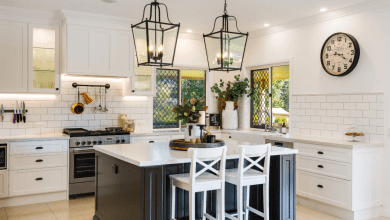
People value their home for more than just physical rest, because it provides them with security and stores all their essential life memories. People develop a deeper emotional connection with each other as they experience the different stages of life. The heart remains satisfied in its current location, but financial stability does not always follow. Retirees need to stretch their financial resources because their retirement expenses for living costs, medical care, and home maintenance have risen above their original retirement planning estimates.
The current retirement discussions focus on “aging in place” as their primary concern. It’s not just about staying in your home—it’s about doing so comfortably, safely, and financially sustainably. The good news? You can maintain your beloved home in your later years through proper planning, thereby avoiding financial constraints.
Understanding the Financial Landscape of Aging in Place
The majority of homeowners aged 60 or older own valuable homes but lack sufficient financial resources. The homeowners have accumulated substantial home equity but face a challenge because their wealth remains locked in their real estate rather than being available as cash. People who choose to stay in their homes can access their home equity as a practical financial option.
That’s where it’s essential to explore the reverse mortgage pros and cons. Before making any significant financial decisions, homeowners can use reverse mortgages to access cash from their home’s value through three payment options: cash disbursements, credit access, and regular monthly payments. Financial products, including these options, require evaluation of interest accumulation and loan terms and their effects on future estate planning.
Your prior knowledge will help you select options based on reason rather than emotional choices. The utility service functions as a vital connection that transforms an ordinary house into a secure environment for people. People need to recognize their career mismatch right away because this awareness helps them prevent future work problems.
Making Your Home Work for You
The practice of aging in place requires more than physical comfort; it also requires establishing financial stability. Homeowners start their evaluation process by identifying which house elements will help them perform their daily tasks better, rather than getting in their way.
Your home needs to perform additional tasks to help you achieve your goals.
Downsize the Unused: A large property owner should consider renting out unused space by converting it into a basement suite or guesthouse. The extra money will help cover maintenance expenses while allowing you to stay in your current home.
Renovate Strategically: Your home becomes safer and more livable through basic improvements such as grab bars, slip-resistant flooring, and wider doorways.
People who qualify for equity-based options can use these tools to expand their financial resources for healthcare, home renovation, and other significant expenses. Always review interest rates, payment terms, and all fees before you make any financial decision.
Your home should operate as a financial planning tool rather than serving its traditional purpose as a residence. People can achieve economic security and emotional serenity through proper management of this resource.
The Emotional Value of Staying Home
The aging process in my memory-filled location provides me with complete peace of mind. People use familiar surroundings to manage stress and develop self-reliance, which supports their mental well-being. The AARP shows that people aged 50 and older want to remain in their present residences throughout their senior years.
People who stay at home can stay connected to their community through home-based activities, which help them maintain their routine and self-esteem. A home holds value beyond its monetary worth because it embodies family heritage and serves as the family’s central gathering spot.
The evaluation process requires emotional choices for proper assessment, yet these choices must maintain equilibrium with the actual circumstances. People should talk to their family members and financial advisors about their options, as this helps all parties understand the emotional and economic implications of continuing to live in the home.
Combining Comfort with Financial Clarity
People can achieve graceful aging without sacrificing their safety or way of life. The process requires you to choose your retirement lifestyle while determining how to fund it.
The following steps need to be taken.
Evaluate All Income Streams: Review retirement accounts and pensions and Social Security benefits to establish your monthly income amount.
The plan should include insurance coverage and supplemental income sources to help avoid future financial difficulties as healthcare costs rise.
Stay Flexible: Economic conditions and personal health can shift. Your financial strategy needs periodic plan assessments every few years to keep pace with your changing requirements.
People can age in place with confidence through realistic budgeting and informed financial decisions, eliminating their fears about what will happen.
A Future Built on Familiar Foundations
Your home contains the results of your life’s work, your dedication to love, and your commitment to stability. The property stands as a legacy that exceeds its value as an asset. Your financial strategy should include this investment because it will make the experience more meaningful.
The main objective of financial planning at this stage is to achieve mental comfort through any available solution, including home equity loans, downsizing, and expense management. The success of aging in place depends on preparation rather than luck.
Your future success depends on the knowledge you acquire, as it is your most valuable asset. Your financial options become clearer when you master liquidity management, which brings you both comfort and independence during retirement.
The perfect location for aging exists where you can experience the comfort of being at home.




